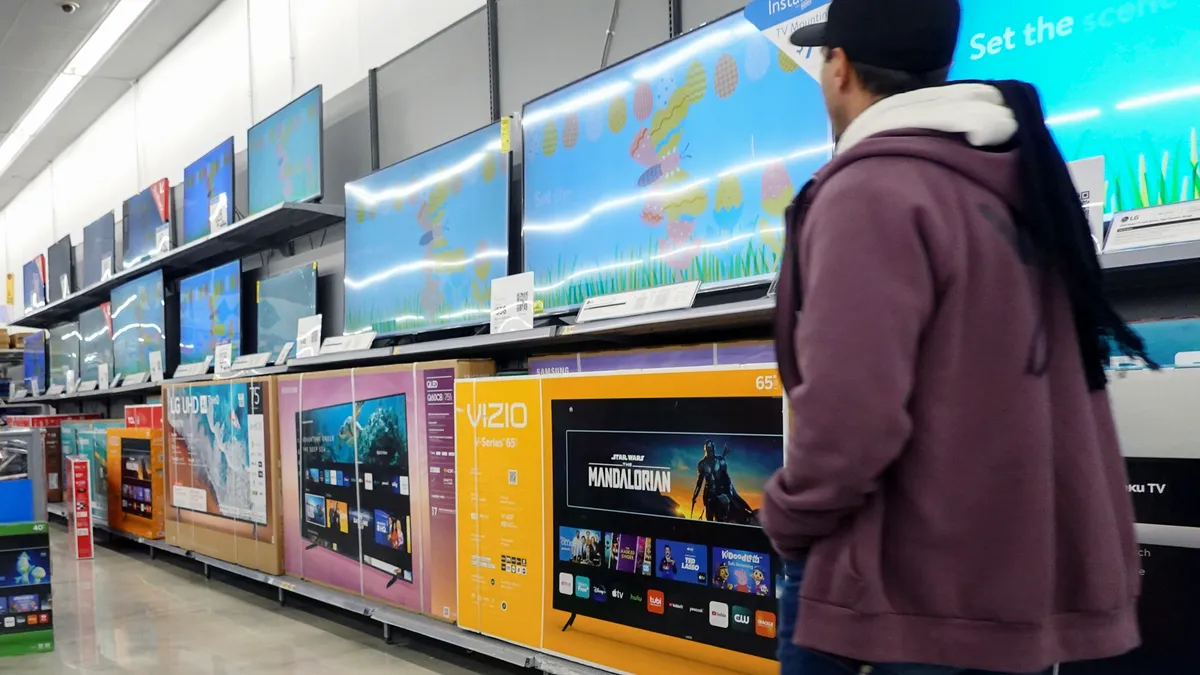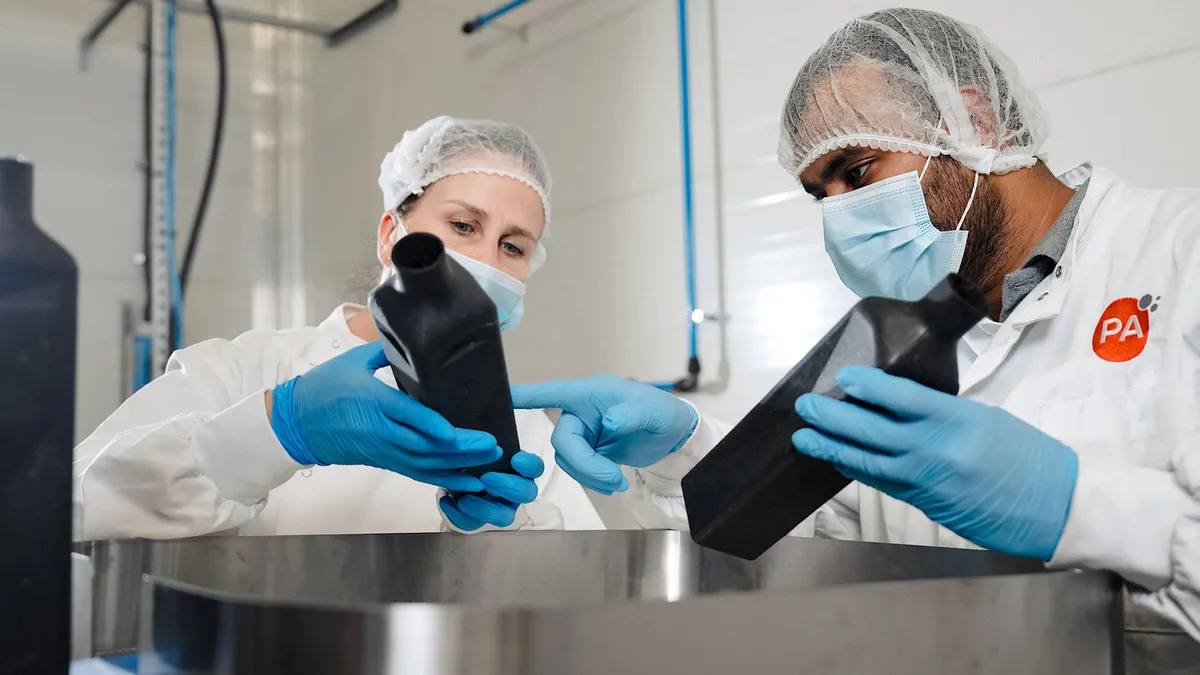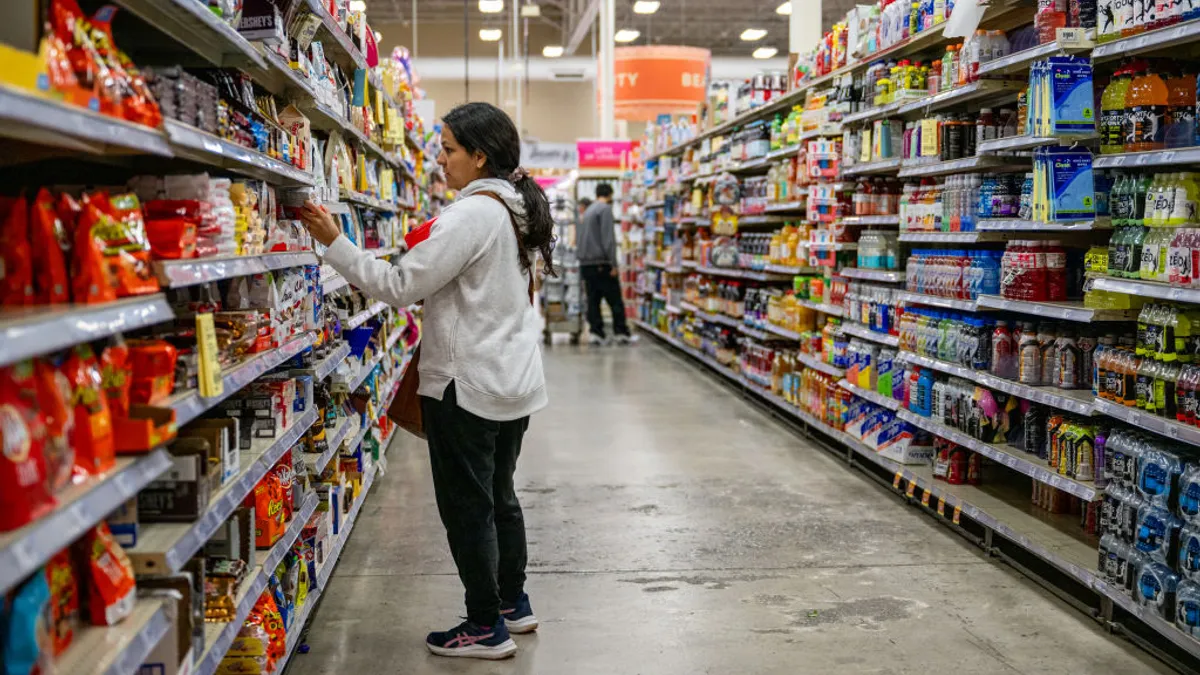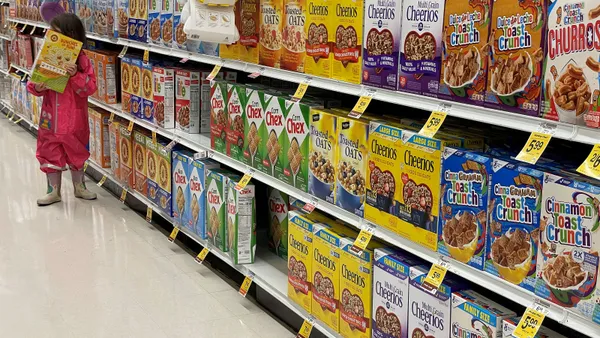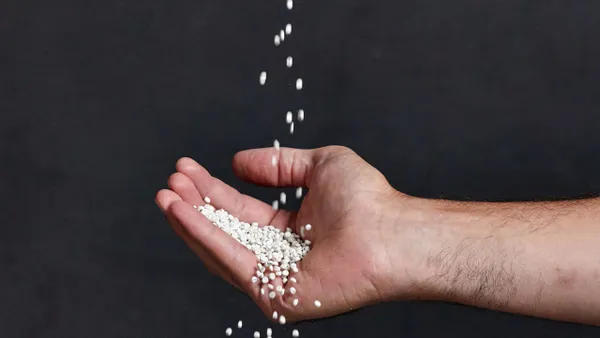Dive Brief:
- Walmart launched a new crowdsourcing initiative for packaging innovation. The Finding Actionable Solutions for Trial, or FAST packaging program, solicits ideas from packaging or materials producers to help the retail giant find and test new sustainable packaging, especially in the areas of design for recycling, compostability and plastic reduction.
- Walmart’s sustainability and private brand packaging teams will review applicants’ submissions and will invite some to pitch their solution either in-person or virtually. Promising innovations will be considered for pilot programs.
- Submissions are due in Walmart’s Circular Connector tool, a public-facing portal it launched two years ago, by June 28 to be considered for a pilot program. Participants do not receive any compensation, Walmart confirmed via email.
Dive Insight:
Walmart is among the growing list of corporations turning to public initiatives to help solve sustainable packaging challenges. Coca-Cola, for example, co-launched a competition this year to find ways to increase the recycled PET supply for packaging. Google and Amazon also have accelerators and innovation opportunities.
Walmart has “accomplished significant design improvements with our suppliers in recent years,” Ashley Hall, Walmart director for strategic initiatives, sustainability, said via email. In 2022, the retailer launched the Walmart Circular Connector tool and started encouraging innovators to share their ideas through the portal; the tool now publicly displays hundreds of innovations.
“To accelerate the work, now we want to clearly communicate where we are looking to lean into solutions in areas that have historically been tricky and prioritize those that are much more complex to design for recycling,” Hall said.
Walmart named seven focal areas for the FAST packaging program:
- Fiber trays and PE flexible film solutions for bakery, deli and fresh food: This packaging is used for products including fresh meats, rotisserie chickens, seasonal bakery items like cookies, salad bag kits and leafy greens
- PE film solutions for candy, chips and snacks: The category also includes granola and nutrition bars
- Fiber trays and bags for frozen foods: This packaging is for categories such as meals and appetizers, non-microwaveable frozen veggies, chicken nuggets and other bagged, prepared, processed proteins
- Fiber blister packaging solutions for consumables and general merchandise: This packaging would be used for a variety of goods such as batteries or health and wellness products
- Reusable and fiber bag solutions for bulk items in bags: Pet food is the leading example in this category
- Reuse, refill, and concentrate innovations for formulated liquid consumables: Packaging for this category primarily covers cleaning products such as dishwasher and laundry detergent
- EPS foam alternatives for general merchandise: TVs, patio furniture and décor are among the key product lines
Hall noted that this list is just a starting point for Walmart and Sam’s Club’s packaging teams. The retailer has committed to several 2025 sustainability targets including eliminating all polystyrene and PVC packaging in private brands and ensuring that all private brand packaging is reusable, recyclable or compostable.
Walmart is among the grocers in Canada that in April began participating in a year-long, localized program allowing shoppers to buy food in reusable containers; Reusables.com tracks the containers collected at neighborhood drop-off sites to determine metrics such as how many single-use plastic containers are avoided. In addition, last year the retail giant introduced commercially compostable cutlery through its store brand, Great Value. Also last year, the company announced that it would replace nearly all plastic mailers with paper versions to eliminate more than 2,000 tons of plastic.
Walmart has come under fire from organizations including Public Interest Research Group for the amount of plastic packaging it uses, especially for groceries. And Greenpeace sued Walmart over allegations of deceiving customers about packaging recyclability; that lawsuit was later dismissed.



